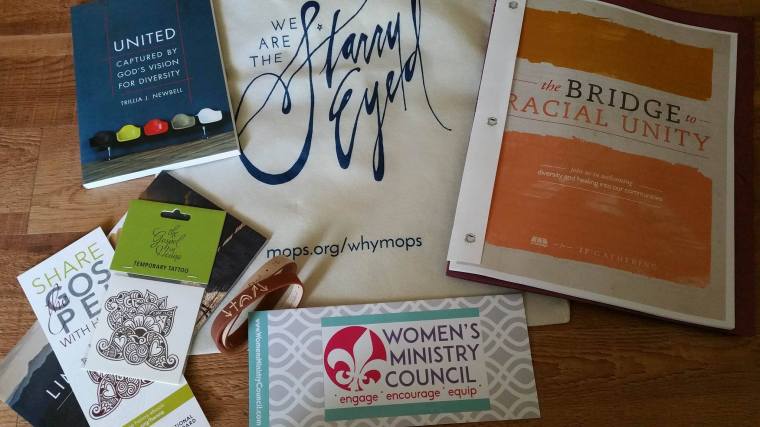
In the past, I’ve spoken to the topic of successful Women’s Ministries are usually in churches that also have active/successful Men’s Ministries. Over the last few weeks, several articles have crossed my desk about women leaving the church and what the impact of that exodus will have on the church. I decided to do a little bit of research on the topic.
What we know, and research supports, is that post industrial revolution there was a shift in the home and thus in the church. As the men went to work outside of the home, women began to take on a larger role in the spiritual development of their children. They also began to take on a more prominent role in the church as leaders and volunteers.
What we know, currently is:
- The typical U.S. Congregation draws an adult crowd that’s 61% female, 39% male. This gender gap shows up in all age categories. (Some churches the % of female members can reach up to 70%)
- On any given Sunday there are 13 million more adult women than men in America’s churches.
- This Sunday almost 25 percent of married, churchgoing women will worship without their husbands. (Even if their husbands profess to be Christian)
- Midweek activities often draw 70 to 80 percent female participants.
There are more women attending, and participating in the active life of the church. This is why you may see that Women’s Bible Studies outnumber their male counterparts. Or, why Women’s Ministry is still a vital ministry in the church… but Men’s Ministries are waning.
Fewer than 10% of U.S. churches are able to establish
or maintain a vibrant men’s ministry.
As I try to discover the roadblocks and obstacles for Women’s Ministry, one of the first questions I have asked is in regards to the presence of a Men’s Ministry. Until I began this research, I didn’t realize that Men’s Ministries had declined to such numbers.
But why? We have less Men’s Ministries because we have less active men participating in the church.
- Over 70 percent of the boys who are being raised in church will abandon it during their teens and twenties. Many of these boys will never return.
- More than 90 percent of American men believe in God, and five out of six call themselves Christians. But only one out of six attend church on a given Sunday. The average man accepts the reality of Jesus Christ, but fails to see any value in going to church.
We have a realization now that in order to get the family to attend church on Sundays, we need to reach the women. When the women come, they bring their husbands and families. I’ve heard from several Pastors that they notice when the wives are not at church due to retreat, business, etc. that the men do not come and bring the children. They take the weekend off too. However a healthy church needs the men to attend… married or single, with the family or not.
When I was in MOPS Leadership, one of the most common complaints that I heard from these young mothers was a deep desire for their husband to return to the role of Spiritual Leader of their home. They didn’t want this burden on their shoulders, and the Bible tells us this was never their burden to bear in the first place.
A study from Hartford Seminary found “that the presence of involved men was statistically correlated with church growth, health, and harmony. Meanwhile, a lack of male participation is strongly associated with congregational decline.”
We must, as a church, begin to really understand WHY men have been on the decline in attendance and participation. We must, as a Women’s Ministry, become advocates for Men’s Ministry in our church. I have seen the effects of a waning Women’s Ministry on the church. When a Women’s Ministry slows or stops functioning, we see the impact on the church as a whole. Women’s small groups decline. Women’s attendance and volunteerism in the church declines. Women will begin going to parachurch events or events at churches which do have active Women’s Ministries. This will often result in the matriarchs of the church moving to churches which do have active Women’s Ministries.
I would suggest the same could be said for Men’s Ministries. As men’s ministries declined, the community connection or family connection of church went with it. The men feeling less connected to their church and more connected to the people they spend 40+ hours a week with in their workplace, or people they have connected with over hobbies have taken precedence. With their free hours, they would rather be actively doing something than seated in the pews.
New statistics are showing that one of the major reasons people are leaving the church is due to their desire to not be passive participants in church but active members. Church has become a spectator sport for the majority as churches seek volunteers to fill the holes they need vs. allowing people in the body to use their gifts and talents as God has called them to. They want discipleship, mentoring, and spiritual growth more than entertainment.
What can we do about it?
- We should engage the women who are already attending. We are starting to see the exodus of women, and we need to stop that in it’s tracks. Create and support Women’s Ministries that are discipleship focused, out reaching into the community with the purpose of bringing women to Christ. Encourage the women to attend regularly and support their husbands attendance and participation.
- We need to encourage the creation and development of a Men’s Ministry. This may begin with a conversation with our own husbands. Just because they start the ministry doesn’t mean they have to stay in the leadership. I’ve seen women take over or begin a ministry with the goal of finding and developing the eventual leader… Pauls finding their Timothys. If your husband is willing to help get if off the ground, you can offer up your ministry skills & experience to help him. This is not only an investment into the Men’s Ministry but the Women’s Ministry… and the church.
- Think ahead and work directly with your Pastors on the occasions that your women will be absent from church. If you are taking your women to a weekend long Women’s Retreat or Conference, have a plan in place with your Pastor and Children’s Pastor about ensuring that weekend has something special for the men and children. A post church barbeque, special kids program, special speaker for the men, etc. are all ways to entice the men to attend in the women’s absence.
- Begin a movement of spiritual gifts testing in your church, where you are actively helping people to identify what their spiritual gift is and figure out where they can be plugged in to the church. The statistics suggest that men need a reason to attend church, so let’s give them one. The same for our women who may have one foot out the door, lets find a place to help them connect to the church in tangible ways.
If the Women’s Ministry is supposed to be a ministry that supports the vision of the church, then that means the whole church. While our focus may be on taking the vision to the women in our church, our leaders need to connect back into the church by supporting the other ministries and our Pastors.
Aimee Nelson once told me that “where the women go, so goes society”. So, where do we want our men and children to go? Let’s set the bar and encourage them to rise to it. Let our Women’s Ministries be known to love women well, and the men too.
- Our married women want their husbands to attend services.
- Our children want their fathers to attend services.
- Our single ladies want the single men in our community to be active members.
- Our widowers need other men in the church that they can have community with.
- Our older men need younger men in the church that they can mentor.
* All statistics are from http://churchformen.com/men-and-church/where-are-the-men/




 He says, “Be still, and know that I am God;
He says, “Be still, and know that I am God; In April, our local Women’s Ministry Councils will begin the start of what we hope is an ongoing conversation toward understanding the value of diversity in our lives and our ministries; as well as the role the Church should play in unification among God’s people.
In April, our local Women’s Ministry Councils will begin the start of what we hope is an ongoing conversation toward understanding the value of diversity in our lives and our ministries; as well as the role the Church should play in unification among God’s people.



